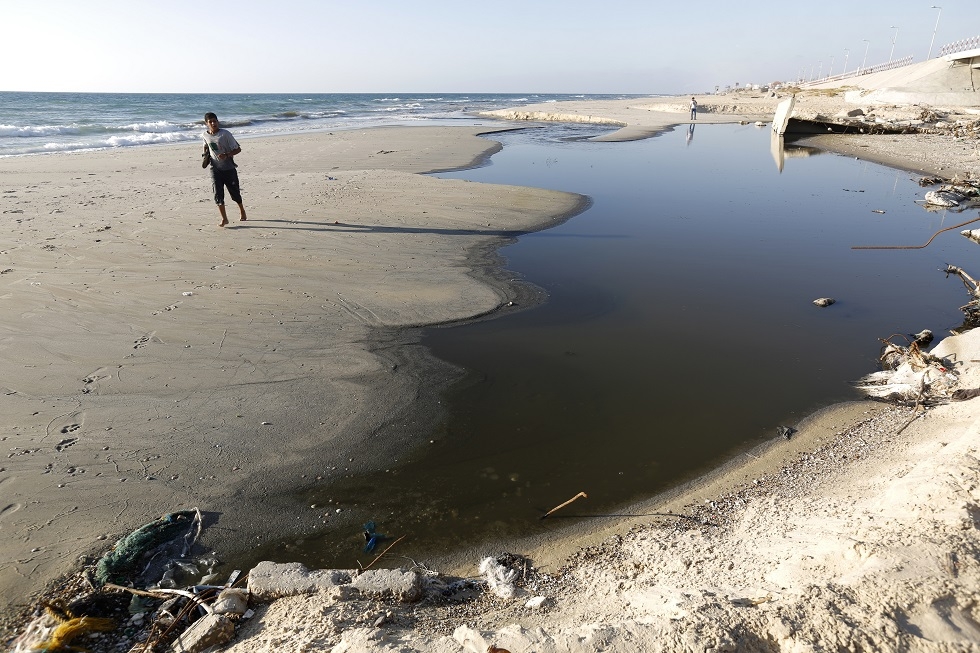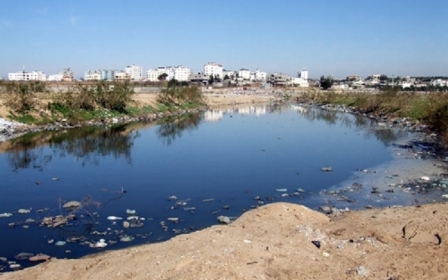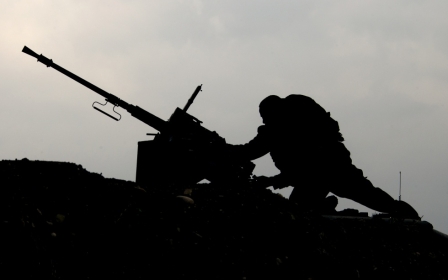Gaza beaches to close due to pollution

The beaches of the besieged Gaza Strip will be closed within days due to rising pollution levels prompted by tight Israeli restrictions, Gaza's environmental authority announced Wednesday.
Pollution along Gaza's seashore has reached the highest levels in years, according to a statement by Gaza's Environmental Quality Authority.
The statement declared that with such high pollution levels, swimming poses health risks and the territory's fish wealth has come under threat.
"Israel's ongoing siege of the Gaza Strip, which has led to the depletion of fuel reserves, has caused huge quantities of wastewater to spill directly into the sea," the authority said.
The authority went on to call for swift action to prevent the wastewater spill from causing a potential health and environment crisis in the territory.
Gaza has been suffering under a crippling Israeli blockade that has deprived the coastal enclave's roughly 1.8 million inhabitants of their most basic needs. The siege on Gaza was intensified after Hamas took control of the strip in 2007.
Israel considers Hamas a "terrorist" group, but Hamas won a majority of seats in 2006 Palestinian legislative elections.
Water corridor proposed with Turkey
Back in April, the Gaza government presented a proposal to Turkey for the creation of a "water corridor" linking the Gaza Strip to the outside world, a government source said.
"The Gaza government will communicate with the Turkish government in the next few days to present the proposal, drafted by the Euro-Mid Observer for Human Rights, for the creation of a water corridor that links Gaza with the world," the source told Turkish news agency Anadolu.
United Nations Relief and Works Agency (UNRWA) Commissioner-General Pierre Krahenbuhl has described the siege as the "longest in history".
Living conditions in the strip deteriorated greatly when the Egyptian army began cracking down on a network of smuggling tunnels - used to smuggle food and fuel into the strip - following last summer's ouster of elected president Mohamed Morsi. Egypt accuses Hamas, which rules Gaza, of involvement in violence in Egypt and the Sinai Peninsula.
Rami Abdo, head of the Euro-Mid Observer for Human Rights in Gaza, said efforts were underway to create a water corridor linking Gaza to the outside world.
He said his agency had presented the Gaza government with a full report on the proposed project.
He said the project was part of efforts to end the longstanding blockade on the Palestinian enclave.
Gaza, which overlooks the Mediterranean Sea, contains a modest seaport, but he port has never been used for commercial shipping.
In 1994, the Dutch and French governments donated $43m for the reconstruction of the port. The project should have been completed in 2000, but the eruption of the Palestinian Second Intifada - and Israel's Gaza blockade put the project on hold.
New MEE newsletter: Jerusalem Dispatch
Sign up to get the latest insights and analysis on Israel-Palestine, alongside Turkey Unpacked and other MEE newsletters
Middle East Eye delivers independent and unrivalled coverage and analysis of the Middle East, North Africa and beyond. To learn more about republishing this content and the associated fees, please fill out this form. More about MEE can be found here.




